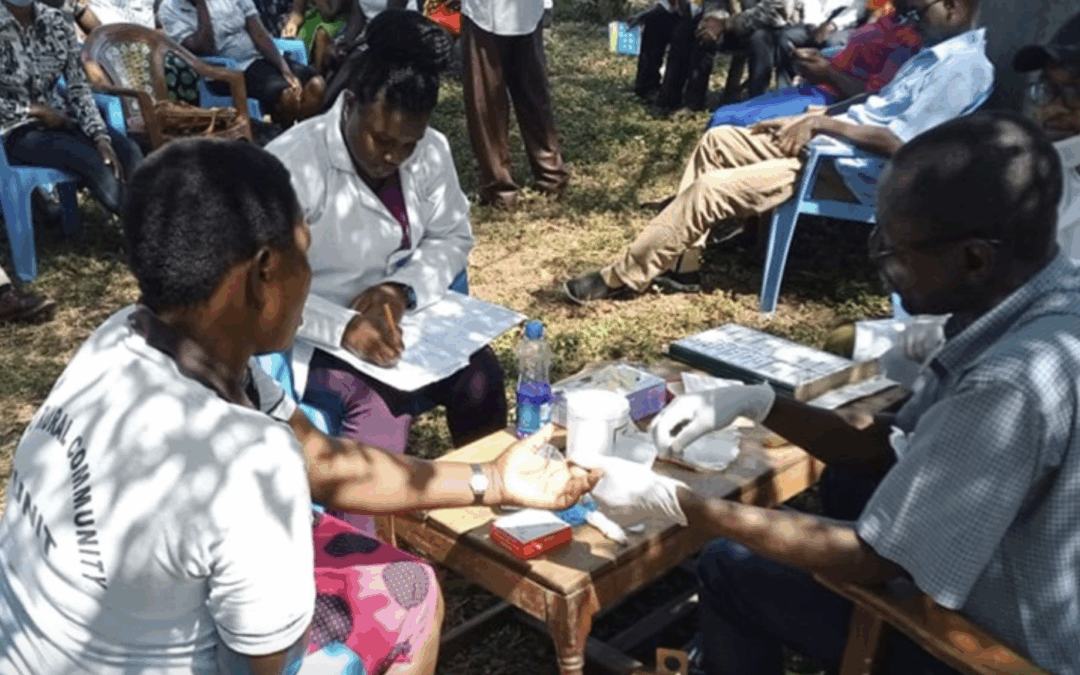Community screening for human African trypanosomiasis (HAT) and monitoring of local populations in Lambwe Valley, Homa Bay County, Kenya. Photo courtesy WHO
Kenya Achieves Elimination Of Human African Trypanosomiasis Or Sleeping Sickness As A Public Health Problem
by World Health Organization
The World Health Organization (WHO) has validated Kenya as having eliminated human African trypanosomiasis (HAT) or sleeping sickness as a public health problem, making it the tenth country to reach this important milestone. HAT is the second neglected tropical disease (NTD) to be eliminated in Kenya. “I congratulate the government and people of Kenya on this landmark achievement,” said Dr Tedros Adhanom Ghebreyesus, WHO Director-General. “Kenya joins the growing ranks of countries freeing their populations of human African trypanosomiasis. This is another step towards making Africa free of neglected tropical diseases”.
Washington State Protects the Old-Growth Forests of Tomorrow, Creates 77,000 Acres of ‘Legacy Forests’
by Andy Corbley, Good News Network
In Washington state, a new Public Lands Commissioner has announced that 77,000 acres of special forests will be taken off the state’s logging rotation for conservation purposes. These “legacy forests,” as they’re being called, are in a state of growth between secondary forests and old growth forests. They’re defined as one which was logged before World War II, but has since been allowed to grow, settle, and diversify, and contains large amount of biodiversity and more space between trees. They could be thought of a little like a “coming of age forest” or the old growth forests of the 22nd century.
Op-Ed: Public Grocery Stores Already Exist And Work Well. We Need More.
by Raj Patel and Errol Schweizer, Civil Eats
New York Assemblymember Zohran Mamdani’s proposal to open five city-run grocery stores has grocery industry executives—and other political foes—clutching their pearls. Critics call it a socialist fantasy. But publicly owned grocery stores already exist, serving over a million Americans every day, with prices 25 to 30 percent lower than conventional retail. We need more public grocery stores, not fewer. The affordability crisis is crushing American families. Grocery prices have spiked 32 percent since 2019, with even sharper increases in meat, frozen foods, and snacks—categories that make up over 50 percent of Americans’ calories and are dominated by a handful of conglomerates.
500+ Catholic Sisters Embark On ‘Pilgrimage Of Hope’ To Support Immigrants, The Environment
by Kamrin Baker, GoodGoodGood
Early in the misty morning on August 14, the rain-slick streets of downtown Atlanta were filled with nearly 500 Catholic sisters speaking in hushed, determined voices. They were on what they call a “Pilgrimage of Hope.” From 7 to 8 a.m., approximately 470 women of faith (and their supporters) prayed aloud along a 1.2-mile route, as 75 others joined them virtually. Leaders guided readings, music, and periods of intentional silence. They paused at three locations, each of which was dedicated to one of the three issues they were in the streets to confront: Forced migration, climate change, and racism.
Arizona Suburb Turned Into Mediterranean-Style Walking Town Where Temperatures Stay Low
by Andy Corbley, Good News Network
A planned community in Arizona has used time-honored Mediterranean strategies to keep temperatures down and attitudes high. Western civilization has grown remarkably climate conscious over the last 20 years, but not when it comes to building, civic planning, and especially zoning. Perhaps the interiors of buildings are becoming more climate adapted, and in some cases the facades as well. Wooden or concrete boxes arranged side-by-side across leveled ground with sprawling, largely treeless gardens and concrete sidewalks alongside wide, blacktop roads is simply a culture of construction that has to be abandoned if living in a world of 2°C or higher annual temperatures is to be tolerable.


Recent Comments